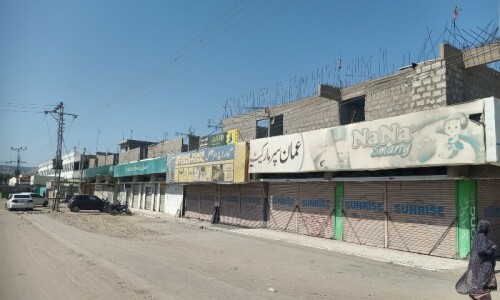ISLAMABAD: Pakistan has lost 29.6 per cent of its agricultural land to soil salinity and sodicity, according to the first major assessment of salt-affected soils in 50 years, released by the Food and Agriculture Organisation (FAO) of the United Nations.
Pakistan has an agricultural land area of 22 million hectares, out of a total land area of 79.7m hectares, of which 6.67m hectares are affected by soil salinity and sodicity, the assessment reveals. The report says some salt-tolerant species are not halophytes, such as cotton, sugar beet, barley, and date palm and do not exhibit the same ability. There are almost 1,500 salt-tolerant species globally but one per cent are being utilised in Pakistan.
The most cultivated crop in saline and sodic conditions is rice, followed by wheat cotton and barley. These crops are irrigated by brackish waters, mainly in Bangladesh, India, Malaysia and Pakistan.
The assessment of the status of salt-affected soils given in the regional assessment was made for six Asian countries — Bangladesh, China, India, Malaysia, Pakistan and Thailand. As per the data provided by the experts from the respective countries, the extent of saline and sodic soils varied from 0.05m hectares in Malaysia to 36m hectares in China.
The report warns that the soil salinisation rate may increase by up to 10pc annually due to climate change, malpractice in agricultural management and inevitable natural processes, and will pose a threat to food security for the region.
Unfortunately, in many of the countries, the official data pertaining to total salt-affected soils and the extent of their saline, sodic and saline sodic soils are unknown. There is, therefore, a demand for systematic surveying and compilation of data to gain a better understanding of the nature and extent of problem soils so that they can be managed sustainably, the FAO report notes.
The assessment shows that in Asian countries, the method commonly used for the determination of soil salinity and sodicity differs. Electrical conductivity (EC) in saturated paste extract for the assessment of salinity is common in Bangladesh, India, Pakistan and Thailand. The sum of total soluble salts is also a common approach in the measurement of salinity in China, India, Pakistan and Thailand. As more than one method is being used, there is need for a uniform global assessment method, it says.
According to the assessment, nearly 1.4 billion hectares of land, just over 10pc of the total global land area, are already impacted by salinity, with an additional one billion hectares at risk due to the climate crisis and human mismanagement.
Published in Dawn, December 22nd, 2024














































